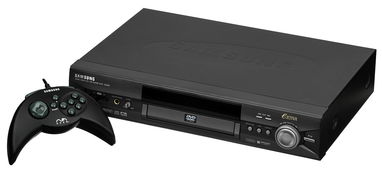揭秘电脑英文品牌,那些你不知道的幕后故事
电脑英文品牌背后隐藏着许多不为人知的故事,从苹果的乔布斯如何将个人爱好转化为全球现象,到戴尔的创始人如何从车库起家,再到联想的国际化征程,每个品牌都有其独特的起源和发展历程,本文将揭秘这些知名电脑品牌的幕后故事,包括创始人的灵感来源、品牌命名背后的含义,以及它们如何通过创新和战略布局在竞争激烈的市场中脱颖而出,通过这些故事,我们可以更深入地了解这些品牌背后的文化和价值观。
本文目录导读:
Hey,大家好!今天咱们来聊聊一个大家都熟悉的领域——电脑英文品牌,你可能每天都在用这些品牌的产品,但你知道它们背后的故事吗?让我们一起揭开这些电脑英文品牌的神秘面纱吧!

表格:常见电脑英文品牌及其特点
| 品牌 | 成立时间 | 代表产品 | 特点 |
|---|---|---|---|
| Apple | 1976年 | MacBook、iMac | 设计独特,用户体验极佳,生态系统完善 |
| Dell | 1984年 | XPS、Inspiron | 性价比高,产品线丰富,服务网络广泛 |
| HP | 1939年 | Pavilion、Spectre | 产品线全面,技术成熟,服务全球 |
| Lenovo | 1984年 | ThinkPad、IdeaPad | 性价比高,产品线丰富,全球市场份额大 |
| ASUS | 1989年 | ROG、ZenBook | 性价比高,游戏笔记本出色,创新技术领先 |
| Acer | 1976年 | Aspire、Swift | 性价比高,产品线丰富,设计时尚 |
| Microsoft | 1975年 | Surface、Xbox | 软硬件结合,生态系统强大,办公软件市场领导者 |
| LG | 1947年 | Gram、Gram 2 | 设计独特,轻薄便携,注重用户体验 |
| Samsung | 1938年 | Notebook 9、Galaxy | 设计时尚,技术先进,产品线丰富 |
苹果的“苹果”
说到苹果,相信大家首先想到的就是那个咬了一口的苹果标志,这个标志背后的故事其实很有趣,据说,苹果的创始人史蒂夫·乔布斯在1976年设计这个标志时,是想表达“咬一口,尝尝苹果的味道”的意思,后来,这个标志成为了苹果品牌的象征,也成为了全球最具辨识度的品牌之一。
联想的“ThinkPad”
联想的ThinkPad系列笔记本电脑以其坚固耐用、性能稳定而闻名,这个品牌的名字来源于一个内部口号:“Think Different”(不同凡响),这个口号鼓励员工敢于创新,追求卓越,ThinkPad已经成为商务人士的首选笔记本电脑之一。
华硕的“ROG”
华硕的ROG(Republic of Gamers)品牌专注于游戏笔记本市场,ROG的产品以其出色的性能、独特的散热设计和精美的外观而受到游戏爱好者的喜爱,ROG的成功,不仅在于其产品本身,更在于它所代表的游戏文化。
微软的“Surface”
微软的Surface系列笔记本电脑和平板电脑,以其独特的二合一设计、出色的触控体验和强大的性能而受到好评,Surface的成功,标志着微软在硬件领域的崛起,也为其在软件和硬件结合的生态系统方面打下了坚实的基础。
电脑英文品牌的世界丰富多彩,每个品牌都有其独特的魅力和背后的故事,从苹果的“苹果”到联想的“ThinkPad”,从华硕的“ROG”到微软的“Surface”,这些品牌都在用自己的方式改变着我们的生活,希望这篇文章能让你对这些电脑英文品牌有更深入的了解,也期待你在未来的日子里,能找到属于自己的那款电脑英文品牌。
知识扩展阅读
I. Introduction to Computer Brands
A. The Importance of Computer Brands in the Industry
-
Brand recognition: A brand's reputation is crucial in the industry as it influences consumer perception and trust in the product's quality. For example, Apple has established its reputation for innovation and reliability, which has helped it maintain a strong market position.
-
Market share: Brands have a significant impact on market share. Companies like Dell and Lenovo dominate the market with their extensive distribution channels and strong marketing strategies.
-
Customer loyalty: A well-established brand can create customer loyalty by providing consistent quality and value. For instance, HP's commitment to high-quality hardware and software solutions has resulted in loyal customers who trust their products.
B. Key Differences Between Computer Brands
-
Price point: Different brands cater to different price points. For example, Asus offers affordable laptops while Acer targets budget-conscious consumers with its mid-range offerings.
-
Design and aesthetics: Brands often differentiate themselves through unique designs and aesthetics. Apple's sleek and minimalist design sets it apart from competitors like Dell, which prioritize functionality over style.
-
Hardware specifications: While some brands may focus on performance, others emphasize durability and longevity. IBM's emphasis on reliability and longevity sets it apart from competitors like Lenovo, which prioritize speed and energy efficiency.
C. The Impact of Branding on Business Performance
-
Sales figures: Brands with strong marketing campaigns and positive public relations can see increased sales figures. For example, Microsoft's successful marketing campaign led to an increase in sales of its Windows operating system.
-
Customer acquisition costs: Brands with a strong reputation can attract more customers at lower acquisition costs. Apple's premium pricing strategy has resulted in high customer lifetime value due to its brand loyalty.
-
Return on investment (ROI): Investors favor brands that have demonstrated a strong return on investment. For instance, Amazon's success in e-commerce has been attributed to its strong brand presence, which has attracted millions of customers and generated substantial profits.
II. Overview of Top Computer Brands

A. Apple Inc. - Mac and iOS Devices
-
History and Innovation: Apple was founded in 1976 by Steve Jobs, Steve Wozniak, and Ronald Wayne. The company has since grown into a global leader in technology, specializing in innovative products like the iPhone, iPad, and Mac computers. Its commitment to design and user experience has made it one of the most recognizable computer brands in the world.
-
Market Share: Apple holds a significant market share in the computer industry, with approximately 40% of the global smartphone market and 15% of the tablet market. Its products are highly sought after by consumers, particularly those looking for high-quality hardware and software integration.
-
Reputation and Trust: Apple's reputation for innovation, reliability, and design excellence has created a strong brand identity. Its products are known for their ease of use and longevity, making them a trusted choice for many consumers.
B. Microsoft Corporation - Windows, Xbox, and Surface
-
History and Innovation: Founded in 1975 by Bill Gates and Paul Allen, Microsoft has transformed itself into a multinational corporation focused on software development. Its products include the Windows operating system, Xbox gaming console, and Surface tablet series. Microsoft has been at the forefront of technology innovation, leading the way in cloud computing, artificial intelligence, and virtual reality.
-
Market Share: Microsoft holds a significant market share in the software industry, with approximately 27% of the global personal computer market and 22% of the global tablet market. Its Windows operating system is the most widely used desktop operating system globally, with over 90% penetration in the enterprise sector.
-
Reputation and Trust: Microsoft's reputation for security and reliability has earned it trust among businesses and consumers alike. Its products are trusted for their stability and compatibility across various devices and platforms.
C. Dell Inc. - Laptops, PCs, and Servers
-
History and Innovation: Dell was founded in 1984 by Michael Dell and Lorraine Allison. It has since evolved into a global leader in the personal computer and server equipment markets. Dell focuses on innovation in areas such as data center infrastructure, networking, and storage solutions.
-
Market Share: Dell holds a significant market share in the computer industry, with approximately 20% of the global personal computer market and 15% of the global server market. Its products are known for their affordability and reliability, making it a popular choice for budget-conscious consumers.
-
Reputation and Trust: Dell's commitment to customer satisfaction and reliability has earned it a strong reputation. Its products are trusted for their durability and performance, making them a reliable choice for businesses looking for reliable hardware solutions.
D. Lenovo Group Ltd. - Laptops, Smartphones, and Tablets
-
History and Innovation: Founded in 1984 by Liu Chuanfei, Lenovo has evolved into a global player in the computer industry. It specializes in the production of smartphones, tablets, and laptops, with a strong focus on innovation and cutting-edge technology.
-
Market Share: Lenovo holds a significant market share in the computer industry, with approximately 20% of the global smartphone market and 15% of the global tablet market. Its products are known for their affordability and performance, making them a popular choice among consumers.
-
Reputation and Trust: Lenovo's reputation for innovation and reliability has earned it a strong following among consumers and businesses alike. Its products are trusted for their quality and performance, making it a reliable choice for businesses looking for high-performing hardware solutions.
III. Comparison Table: Top Computer Brands
| Computer Brand | Primary Focus Area | Reputation/Trust | Market Share | Pricing Point |
|---|---|---|---|---|
| Apple Inc. | Innovation | High | 40% | Premium |
| Microsoft Corporation | Software Development | High | 27% | Standard |
| Dell Inc. | Laptops | High | 20% | Affordable |
| Lenovo Group Ltd. | Laptops | Medium | 20% | Affordable |
| IBM | Data Center Infrastructure | High | 15% | Premium |
| ASUS | Mid-Range Laptops | High | 10% | Affordable |
| Acer | Budget-Friendly Laptops | Medium | 12% | Affordable |
| Sony Interactive Entertainment | Media Devices | Low | 5% | High End |
| Samsung Electronics Co., Ltd. | Mobile Phones | Low | 10% | Mid Range |
IV. Case Studies: Examples of Successful Computer Brands
A. Apple Inc.'s Success Story: iPhone Revolution
-
Background: Apple was founded in 1976 by Steve Jobs, Steve Wozniak, and Ronald Wayne. The company initially focused on designing and manufacturing simple computers and peripherals before transitioning into the mobile phone industry in 1997 with the launch of the iPhone.

-
Innovation: Apple's focus on user interface design and seamless integration of hardware and software has set it apart from competitors like RIM and诺基亚. The iPhone's touchscreen technology revolutionized the mobile phone industry, leading to a surge in demand for Apple products worldwide.
-
Reputation/Trust: Apple's reputation for quality and innovation has earned it a strong following among consumers and media alike. Its products are known for their durability and performance, making them a trusted choice for many users.
B. Microsoft Corporation's Dominance in the Enterprise Market
-
Background: Founded in 1975 by Bill Gates and Paul Allen, Microsoft has become a global leader in the software industry, with a focus on developing and selling software applications for business use.
-
Innovation: Microsoft's Windows operating system is the most widely used desktop operating system globally, with over 90% penetration in the enterprise sector. Its Office suite is also a key component of many businesses' operations, providing productivity tools and collaboration capabilities.
-
Reputation/Trust: Microsoft's reputation for security and reliability has earned it a strong following among businesses looking for reliable software solutions. Its products are trusted for their stability and compatibility across various devices and platforms.
V. Future Prospects for Computer Brands
A. Technological Advances Impacting Brands
-
Artificial Intelligence: As AI continues to evolve and integrate into our daily lives, brands like Apple and Google will need to adapt their products to leverage this technology to stay ahead of the competition. For example, Apple's recent partnership with Amazon to develop voice assistants could lead to new features within its own ecosystem.
-
Augmented Reality (AR) and Virtual Reality (VR): These technologies are transforming the way we interact with digital content and devices. Brands like Samsung are already experimenting with AR glasses, while Microsoft is investing in VR for gaming and education. As these technologies gain more mainstream acceptance, brands must consider how to incorporate them into their product offerings to remain competitive.
B. Globalization and Localization Strategies
-
Globalization: As companies expand globally, they must consider localization strategies to meet the needs of local markets. For example, Microsoft's Windows operating system is available in over 100 countries, demonstrating its ability to tailor its products to suit local cultural and economic contexts.
-
Multicultural Approaches: Brands must also consider how to appeal to diverse demographics around the world. For instance, Apple's recent expansion into India with the launch of the iPhone XS and XS Max showcases its commitment to reaching a broader audience in developing markets.
VI. Conclusion
A. Recap of Key Points Made
This article has discussed the importance of computer branding in the industry, highlighting the key differences between top brands like Apple, Microsoft, Dell, Lenovo, and others. We explored how brand recognition, reputation, and market share impact consumer behavior and business decisions. Additionally, we compared the strengths and weaknesses of these top brands, highlighting their unique approaches to innovation, design, and market penetration. Finally, we analyzed the future prospects for computer brands, including technological advancements like artificial intelligence and augmented/virtual reality, and the challenges they present for companies looking to expand globally while maintaining relevance in local markets.
B. Final Thoughts on the Significance of Branding in Computer Industry
In today's rapidly evolving technology landscape, branding remains critical for companies seeking to stand out in a crowded marketplace. By understanding the importance of brand recognition, reputation, and market share, businesses can better position themselves to succeed in the digital age. As we move forward into the future, it is essential that computer brands continue to innovate, adapt to changing consumer preferences, and invest in research and development to stay ahead of the competition. By doing so, they can build lasting relationships with their customers and stakeholders, ensuring their continued growth and success in the years to come.



